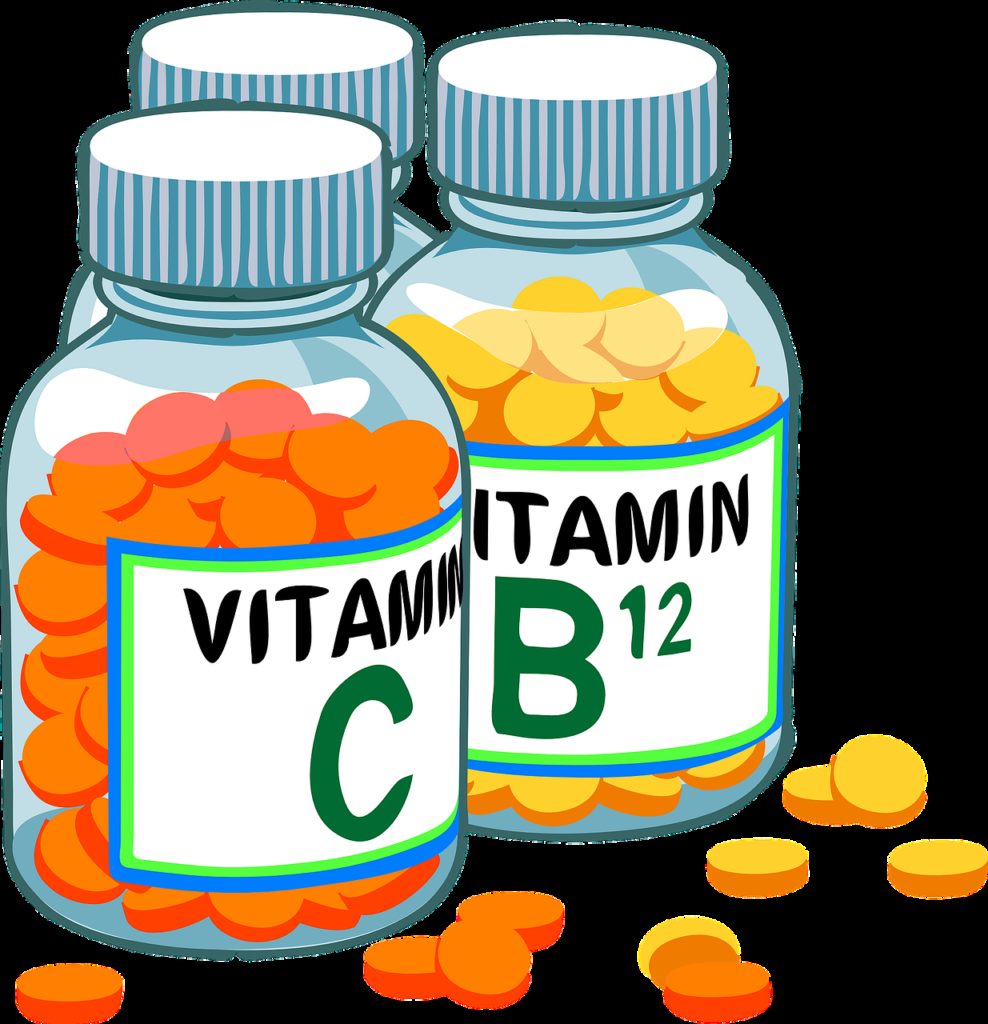Supplement Review: KirklandSignature™ Daily Multiple
KirklandSignature™ Daily Multiple
Cost 14.99 (plus tax)
Amount of pills 500
Found At: Costco
The Short Of It
Pros: Affordable
Cons: You get what you pay for, Poorly made, many fillers, coatings decreasing absorption, a low dose of nutrients, contains Iron, uses very poor nutrients that have limited bioavailability.
Common Patient Comments: Notice no change versus not using any supplementation.
Overall: I would never recommend this supplement to any patient. Specifically, I would encourage patients not to take it, especially those who are pregnant, nursing, taking blood thinners, or have nickel allergies. In my opinion, athletic patients would not receive any benefit what-so-ever from this product.
What’s in it?
Serving Size: 1 Tablet
Each Tablet Contains – % Daily Value:
| Vitamin A 3500 IU (29% as Beta Carotene) – 70% | Vitamin C 90 mg – 150% | Vitamin D 400 IU – 100% | Vitamin E 30 IU – 100% |
| Vitamin K 25 mcg – 31% | Thiamin (Vit. B1) 1.5 mg – 100% | Riboflavin (Vit. B2) 1.7 mg – 100% | Niacin 20 mg – 100% |
| Vitamin B6 2 mg – 100% | Folic Acid 400 mcg – 100% | Vitamin B12 6 mcg – 100% | Biotin 30 mcg – 10% |
| Pantothenic Acid 10 mg – 100% | Calcium 200 mg – 20% | Iron 18 mg – 100% | Phosphorus 109 mg – 11% |
| Iodine 150 mcg – 100% | Magnesium 100 mg – 25% | Zinc 11 mg – 73% | Selenium 55 mcg – 79% |
| Copper 0.9 mg – 45% | Manganese 2.3 mg 115% | Chromium 35 mcg – 29% | Molybdenum 45 mcg – 60% |
| Chloride 72 mg – 2% | Potassium 80 mg – 2% | Boron 150 mcg – * | Nickel 5 mcg – * |
| Tin 10 mcg – * | Silicon 2 mg – * | Vanadium 10 mcg – * | Lutein 250 mcg – * |
| Lycopene 300 mcg – * |
*Daily Value not established.
Ingredients:
Dibasic Calcium Phosphate, Magnesium Oxide, Potassium Chloride, Cellulose Gel, Calcium Carbonate, Ascorbic Acid, Ferrous Fumarate, Starch (Corn and Tapioca),dl-Alpha Tocopheryl Acetate, Niacinamide, Zinc Oxide, Hydroxypropyl Methylcellulose, Gelatin, d-Calcium Pantothenate, Croscarmellose Sodium, Magnesium Sulfate, Magnesium Stearate, Silicon Dioxide, Copper Sulfate, Pyridoxine Hydrochloride, Thiamin Mononitrate, Riboflavin, Vitamin A Acetate, Polyethylene Glycol, Boric Acid, Beta Carotene, Folic Acid, Lycopene, Chromium Picolinate, Lutein, Potassium Iodide, Sodium Selenate, Sodium Molybdate, Biotin, Phylloquinone, Nickel Sulfate, Sodium Metavanadate, Stannous Chloride, Vitamin D3 (Cholecalciferol), Cyanocobalamin.
No Artificial Colors. No Artificial Flavors. No Preservatives. No Yeast or Gluten.
Detailed Review
First and foremost, the fillers in this product decrease the bioavailability of the product and render it close to useless. It is not highly recommended on that fact alone. Of course, the choices of nutrients that are used in it are also low quality in comparison to a nutriceutical product as well, but we will get to that later. An example of a “filler” is Magnesium Stearate (octadecanoic acid, magnesium salt), which is a non H20 soluble substance that is commonly used as a diluent, which has been shown to slow the breakdown of the pill. Some health care professionals will also argue that those with decreased digestive health will not be able to absorb the nutrients within the pill. This is only one argument of how Magnesium Stearate decreases bioavailability. There is much controversy on the topic and studies that show Magnesium Stearate has no negative effects on bioavailability. Personally, I find it not so coincidental that products considered to be of strong nutriceutical value do not usually contain Magnesium Stearate in their products. On the contrary, companies attempting to produce mass quantities of inexpensive supplements almost always use it along with other fillers. Another “filler” in Kirkland’s Daily is Cornstarch. Why cornstarch is put into a supplement is beyond my comprehension. With many patients having sensitivities to corn, putting corn of any sort into a standard product is an obvious money saver with no therapeutic value. A study[1] attempting to decipher a therapeutic value of cornstarch found that it was effective in treating glycogen storage disease but, had side effects of diarrhea, flatulence, and weight gain. Way to go Kirkland Signature, take consumer health to the next level. Keeping up with lots of fillers is Methylcellulose, an emulsifier that can be used to treat constipation. It is non-toxic and also not digestible… so why put it in a pill that should aim for maximum absorption? You could argue it for the use of vegetarian capsules if there was not already gelatin (an animal byproduct) as an ingredient.
This lovely supplement also has Stannous Chloride, most likely used to coat the pill. It is probably decreasing the absorption and breakdown of the supplement. As a fun side note, industrial companies like to use this as an oxidizing agent to make things like mirrors. Regardless, it is an unnecessary ingredient. The expected defense is the presence of Croscarmellose, which is used essentially to increase bioavailability. The issue associated with this is a common belief that it decreases the intestinal flora. In short, the product combines hard to break down pills with something that may harm the intestinal balance on top of it. No need to stop here though. Moving along the ingredient list, Nickel Sulfate is in this “health supplement”. Long term exposure to nickel has been tied to lung disorders and cancer. It is also not something known for humans to be deficient in. In fact, about 10% of the female population has an allergy to it (cheap jewelry anyone). The only positive is the very low dose contained in the formula. Sodium Molybdate is another ingredient that makes little sense, as very few humans are found to be deficient in this area. It is commonly found in many foods (especially if the consumer has a healthy diet), so it is not usually put in quality supplements. Arguably for Kirkland Signature, it is considered to have some antioxidant qualities which may be beneficial.
Finally, after we finish off the list of useless ingredients, we can look at the benefits people are hoping to get out of it. Many consumers see Magnesium and think “oh I need that”. I couldn’t agree more but, this lovely little pill has two types. One of them is magnesium sulfate (Epsom Salt). I regularly recommend patients to soak in Epsom salt however, I do not tell them to ingest it. Do not get me wrong, it is safe to ingest, it is used to treat constipation. Wait didn’t we already have a few ingredients that flush through the system with no therapeutic use? The other type is Magnesium Oxide. Of the types of Magnesium beneficial to supplement with, this one is at the bottom. Magnesium Citrate should be considered the gold standard for supplements. The same can be said of the products Calcium content. The ingredients list; Calcium Carbonate and Dibasic Calcium Phosphate. Calcium Carbonate is the number one ingredient in antacids such as, “Tums” and is also great for Gym Chalk but, when ingested, actually leads to calcium deposit build-up versus healthy bones. In other words, rather than being helpful, it can be harmful. With Dibasic Calcium Phosphate you are once again looking at the bottom of the line Calcium. My preferred Calcium is Citrate Malate. At this point picking on the ingredients is probably redundant so I will leave it at this; don’t waste your money on this product. Save yourself the fifteen dollars and put it to use on a quality product.
I am not affiliated with any nutrition company, nor does any company provide me with free products outside of standard company policies. That being said, the world of supplements can be a confusing one. With the large scale availability to purchase supplements almost anywhere customers are overloaded with options. Many will purchase supplements from their local drug store or wholesale company, while others will go to one of the many “Supplement Stores”. I highly recommend a third option, purchase supplements from a qualified health care provider. The primary reason, there is a reason they carry lines of supplements customers cannot readily purchase at their local drug store, quality being the number one factor. In fact, some lines (for example Nordic Naturals) provide product lines, a customer direct line, and a health care practitioner line. The practitioner line has almost double the amount of EFA’s in it. The second reason is supervision. Would you manage your pharmaceutical prescriptions on your own? Why would you with nutriceuticals? The purpose of this blog is to review both commonly found supplements such as Kirkland Signature or Centrum as well as professional lines such as Thorne and Pure Encapsulations. The reviews are based on personal opinions of professional health care practitioners utilizing information found on the label and clinical use. Any endorsements are based solely on professional opinion.


Comments are closed.